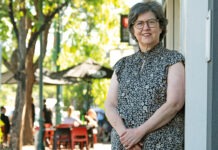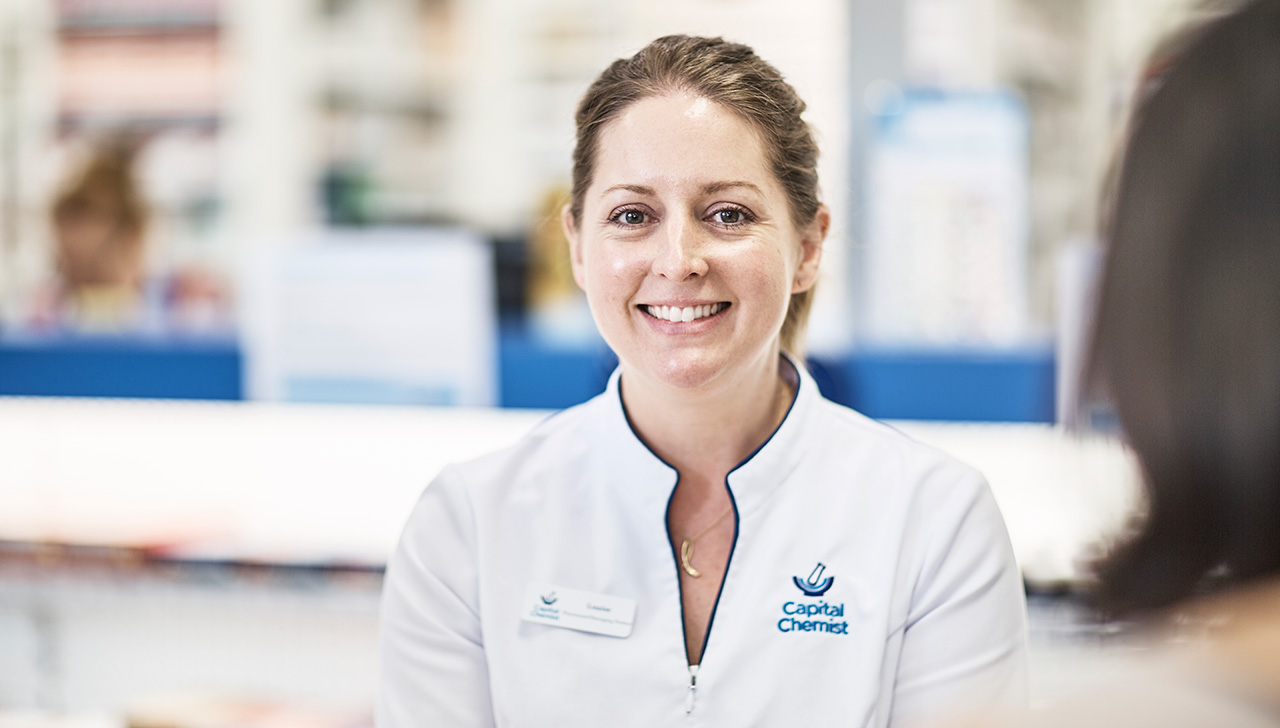A strong advocate of pharmacy in the Northern Territory, Samuel Keitaanpaa MPS has an enviable track record of supporting ECPs as an outstanding leader.
With wrecks in the harbour and rivers and lakes to explore around Darwin, Sam Keitaanpaa might just as easily have become a scuba diving instructor.
But the Kendo enthusiast, whose team represented the Northern Territory (NT) in the Japanese martial art and placed third in the national championships last year, likes to learn and help people, ‘and pharmacy is perfect for that’, the new father explains.
Mr Keitaanpaa is an enthusiastic role model in the world of pharmacy, thanks to his work on the SA/NT branch committee and advocating for pharmacists in Darwin.
‘My passion has always been in how people use medicine, how they access health systems and how well (or frequently, not well) those systems meet their needs.’
The desire for better models of medicine use and reduced instances of inappropriate use of medicine have been at the centre of his career.
Recognition of value
Pharmacy is at a pivotal moment, according to Mr Keitaanpaa.
‘We are getting more recognition for the value we bring to the health of Australians and our own need to move away from supply-centric models.
‘There is now a massive opportunity to take the lead in a range of non-traditional settings,’ he says ’where our skills in medicine, law, health systems and logistics can make a significant difference in how our services care for our clients.
‘In the NT, I have tried to encourage every opportunity for better recognition of pharmacy and medicine safety, and to build links with other health sectors.’
Meet them where they are
Growing up in the NT, Mr Keitaanpaa saw first hand how models of care stayed stagnant for many years and sometimes led to poor patient outcomes.
‘We too often tried to force people to manage their health in the way we told them to,’ he says, ‘rather than giving them the knowledge and confidence to manage it themselves, and presenting a model that matched their own views of what being healthy meant.
‘The only way to bring people to where we want them to be is to meet them where they are and work with them, not force them into a system they don’t feel involved in.’
Mr Keitaanpaa has built his career looking for problems that need fixing and increasing his skills to do that.
‘Probably the most influential parts have been working with my community in Darwin’s rural area, the trust I have built and the personal relationships I’ve developed with many people in that community,’ he says.
‘To know that my base practice and effort is making people’s lives easier, giving them skills to manage their own and their families’ health better, and almost making them mini-advocates for others to engage with the health system, is extremely rewarding and reaffirms my desire to see pharmacists maximise our impact on communities.’
Future priorities
Mr Keitaanpaa has two areas of focus.
‘I would like to see a real telehealth service between pharmacies and health services that focuses on emulating the range of activities a pharmacist can do, not just a phone or video consultation.
‘I am excited about the results of the IPAC trial and hopeful the next stage will be to augment individual services in remote areas, to allow pharmacists to be part of the entire operation of that service, not just auditing drug rooms and the occasional medicine review.
‘With our current IT capacity, there is so much we can do to work with staff on the ground and support their communities.’
Mr Keitaanpaa would also love to lead a partnership project in the NT that could be replicated elsewhere.
When not fishing, camping or walking in national parks with his partner (and baby), another of his goals is to improve opioid pharmacotherapy, which has ‘undeniable’ benefits.
‘Pharmacists are a vital part of team-care arrangements with alcohol and other drug services and need to be given more scope to encourage better uptake and use of supportive programs.’
What change in pharmacy in the past 2 years were you most excited about?
The ever-increasing integration of information technology into how medicines are prescribed and then reviewed by pharmacists. The My Health Record, real-time prescription monitoring, e-prescribing, and pharmacist-curated medicines lists all increase the visibility of the pharmacist and offer ways to work with clients, manage their medicines and encourage them to be active participants in their health discussions.
What action in PSA’s Pharmacists in 2023 report is the most important to be realised?
I think it’s impossible to separate the actions, but if we focus on Action 9, we will actually capture the others.
If we can build a model of pharmacy in the bush that increases collaboration and offers opportunities to grow skills, and be recognised and remunerated for it, we can transpose this to other settings.



 Kelly Abbott MPS[/caption]
Kelly Abbott MPS[/caption]


 Owner of Canberra's Capital Chemist Southlands Louise McLean MPS.[/caption]
Owner of Canberra's Capital Chemist Southlands Louise McLean MPS.[/caption]

 Supplied by CSL Seqirus[/caption]
Supplied by CSL Seqirus[/caption]







